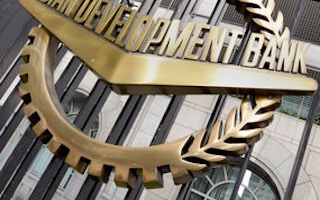International and local Civil Society Organizations (CSOs) on Tuesday urged the Asian Development Bank (ADB) to reject a government proposal to obtain a $101-million loan for an electric powered tricycles (E-trikes) project.
The CSOs said the ADB “railroaded” the project and did not hold any consultations with stakeholders. The loan will be obtained from the Clean Technology Fund (CTF) is one of two funds from the Climate Investment Funds (CIF) managed by the ADB.
The CSO’s said the Trust Fund Committe of the CTF is set to deliberate and approve the $101-million Revised CTF Investment Plan for the Philippines on Wednesday in Washington, DC.
“I am appalled at the ADB’s continuing disregard of the people’s right to participate and have a say on how and where climate finance should be utilized. This demonstrates again the reverse ‘Midas Touch’ of the ADB. Electric public utility vehicles may be worthy of public support, but ADB manipulation is transforming good intentions into rubbish,” NGO Forum on ADB Executive Director Avilash Roul said in a statement.
In November, the ADB and the Department of Energy (DOE) presented the Revised Clean Technology Fund Investment Plan for the Philippines in Washington, DC.
In 2009, $125 million was allocated to renewable energy (RE) and energy efficiency program of the country. Under the revised plan, $24 million will be allocated for energy efficiency and $101 million for E-trikes.
“Subsidies for E-trikes are not needed, especially not for a project like this with a flawed design. Financing for RE and feed-in-tariffs are. The ADB has no business diverting money away from country priorities,” said Greenpeace Southeast Asia campaigner Francis de la Cruz. “There have been zero consultations on the fund diversion with the RE industry in the country. This is outrageous,” de la Cruz said.
Further, in a letter responding to an inquiry from the Freedom from Debt Coalition (FDC) last December, the Department of Energy (DOE) said the fund diversion was initiated by the ADB.
“The funding is being shifted by ADB from one project to another project which they feel is much more economical and has greater impact and more transformational,” the DOE letter stated.
The E-Trikes project of the ADB was criticized for the absence of disposal, after-sales services and replacement programs in the project design. This, local CSOs said would worsen traffic conditions in the country.
The ADB intends to utilize new electric vehicle technologies, particularly lithium ion batteries, in its E-trikes. The Associated Press recently reported the massive recall in the US of electric cars due to persistent lithium ion battery-related safety and maintenance issues.
“Instead of extending subsidized credit to E-trike manufacturers, the money should be used for innovative financing programs that dramatically lower the transition costs involved in shifting to renewable energy in the Philippines, which already has one of the highest power rates in the world,” FDC Power Coordinator Job Bordamonte said.










